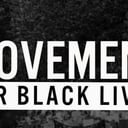New Jersey Law Journal
By MARY P. GALLAGHER
Bolstered by U.S. Supreme Court rulings that have placed death-penalty laws under new, enhanced scrutiny, New Jersey public defenders with support from prosecutors and the Attorney General’s Office are seeking a statewide freeze of capital cases so the full effect of those rulings can be assessed.
The test case is State v. Figueroa, a pending murder trial in Camden County. Assistant Deputy Public Defender Joseph Krakora last Tuesday asked the New Jersey Supreme Court to stay the case pending appeal.
Included with the motion was a letter by Assistant Attorney General Peter Harvey, stating that the issues raised by the recent U.S. high court rulings are of “such tremendous statewide import” that all capital trials should be stayed until the state Supreme Court addresses them.
The principal basis for the motion is the June 24 ruling in Ring v. Arizona, 122 S. Ct. 2428, which calls into question the validity of the indictment and the death-penalty statute. In Ring, the justices struck down an Arizona law that allowed judges rather than juries to decide death sentences.
Krakora contends that Ring and other recent rulings require that aggravating factors be presented to a grand jury and that New Jersey’s statute, which does not so provide, is unconstitutional.
If the Court grants a stay in Figueroa, in which jury selection started last Thursday, the rationale for doing so would extend equally to all pending capital cases.
Harvey’s letter — originally submitted in State v. Koskovich, where a defense appeal from adverse rulings on Ring issues is pending — notes that similar challenges to the validity of the New Jersey law have been raised in at least four cases awaiting trial and two on appeal, and that the public defender’s office has stated its intent to litigate the claim in the state’s 26 pending death prosecutions.
Harvey warned of the “potential for an incalculable waste of judicial and prosecutorial resources” if the capital prosecutions proceed to trial without guidance on this issue. “Indeed, so significant is the issue and so pressing is the necessity for immediate and definitive resolution, in this case and others, that in State v. Fortin, a capital case currently pending before the Supreme Court, the State has taken the unprecedented steps of not objecting to the Public Defender’s filing of a supplemental brief raising a new claim and cross-moving to accelerate consideration of the issue,” he wrote.
THROWING ‘APPRENDI’ INTO ‘RING’
At first blush, Ring might not appear to have much effect here. Unlike Arizona and eight other states where juries convict and judges mete out death sentences, New Jersey juries decide guilt and punishment, including whether the aggravating factors required for a death sentence are present.
Capital defense counsel, however, have coupled Ring with the Court’s decision in State v. Apprendi, 530 U.S. 466 (2000), on which Ring relied, to argue that New Jersey’s death-penalty statute is unconstitutional because aggravating factors are not presented to the grand jury as part of the indictment process.
Apprendi struck down New Jersey’s hate-crimes law because it allowed a judge to enhance the punishment for a crime based on a finding by the judge, rather than the jury, that the crime was motivated by bias or hate. Relying on Apprendi, the Court held, 7 – 2, in Ring that Arizona, by allowing the judge to decide the existence of aggravating factors that elevate a sentence to execution, violated the Sixth Amendment right to a jury.
As defense counsel now argue, Ring also applies to grand jury indictments in jurisdictions that require them. The Fifth Amendment grand jury requirement has not been held to extend to the states but New Jersey is among the states with its own grand jury requirement.
Krakora argues in his brief in Figueroa that “for a death penalty statute to pass constitutional muster post Ring, it must establish a procedure by which a Grand Jury reviews the proposed aggravating factors. It must either incorporate aggravating factors as elements of a greater crime of capital murder (thus requiring that they be part of the indictment) or, alternatively, define some other mechanism by which the Grand Jury determines that they are appropriately charged.”
OTHER ‘RING’ MOTIONS
So far, two Ring motions have been decided in New Jersey.
The first was on Aug. 23, when Morris County Assignment Judge Reginald Stanton denied a motion by defense counsel Pamela Brause and Lucas Phillips Jr. in Koskovich. Stanton also refused a stay pending appeal; the matter is before the Appellate Division. Jury selection is scheduled to start Tuesday in the new penalty trial for Thomas Koskovich, convicted, along with Jayson Vreeland, of murdering two pizza deliverymen in 1997.
On Sept. 5, Camden County Superior Court Judge Irvin Snyder denied a similar motion in Figueroa and likewise refused to stay the trial of Michael Figueroa for the 1995 murder of a 13-year old girl. Snyder was affirmed on Sept. 10 and that same day Krakora moved for leave to appeal or, alternatively, for direct certification to the Supreme Court.
There have been no Ring motions in New Jersey federal courts thus far for the simple reason that there are no capital cases pending, but “if one comes up, we will make the argument,” says Federal Public Defender Richard Coughlin.
Elsewhere, however, federal defense counsel have been filing Ring motions to throw out indictments and declare the federal death penalty unconstitutional. A Ring motion is pending in the only case brought against an alleged conspirator in the Sept. 11 attacks, U.S. v. Moussaoui.
Federal prosecutors have responded with superseding indictments that include the aggravating factors in a section labeled “Notice of Special Findings,” says capital defense attorney David Ruhnke, of Montclair’s Ruhnke & Barrett.
In one of Ruhnke’s cases, U.S. v. Sampson, a triple homicide case pending in the U.S. District Court for Massachusetts, U.S. Attorney Michael Sullivan announced the re-indictment in an Aug. 8 press release. The announcement explained that the new indictment was meant “to avoid any potential legal issues that might arise” under Ring and “to preserve the Attorney General’s right to determine” whether the case should be charged as a capital case. Ruhnke planned to file a Ring motion in Sampson last Friday.
Federal judges have been equally unreceptive to Ring motions thus far, denying the motions as well as requests to strike the “Special Findings” from amended indictments in two published cases. U.S. v. Church, 2002 U.S. Dist. LEXIS 16696 (Sept. 5, 2002 W.D. Va.); U.S. v. Lentz, 2002 U.S. Dist. LEXIS 16336 (Aug. 22, 2002, E.D. Va.).
“Nothing in … Ring suggests that the United States Supreme Court … overturned the act or the overall structure of capital sentencing,” U.S. District Judge Gerald Bruce Lee wrote in Lentz.
In an unpublished ruling on Aug 22, Judge Malcolm Muir of the Middle District of Pennsylvania also denied a Ring motion filed by Ruhnke in U.S. v. O’Driscoll.
Coughlin and Ruhnke both mention a Ring motion argued last month before Vermont U.S. District Judge William Sessions III in U.S. v. Fell as one where comments by Sessions indicate he might be inclined to grant the motion.
A more difficult question raised by Ring is whether it can be used by those already on death row, who must overcome the argument that, whatever the defects of the indictment, they have been cleansed by the subsequent beyond-a-reasonable-doubt jury finding that the requisite aggravating factors are present.
As Harvey’s letter mentioned, one such appeal has been filed in New Jersey in the Fortin case. Steven Fortin is one of 14 inmates on death row in New Jersey.
Krakora declines comment, as does the New Jersey Attorney General’s office, stating that Harvey’s letter speaks for itself.
The U.S. Department of Justice did not return a call requesting comment not did Assistant Camden County Prosecutor Gregory Smith, in the Figueroa case, or Assistant Sussex County Prosecutor Michael Briegel, in the Koskovich case.
Back to Articles page


